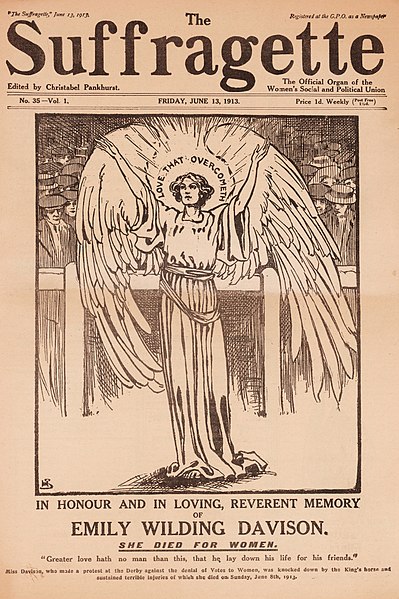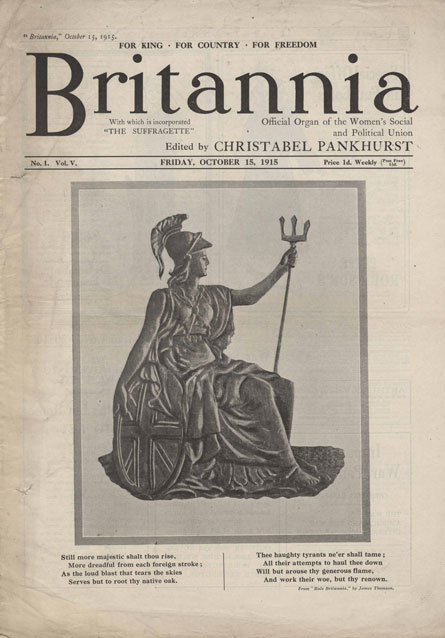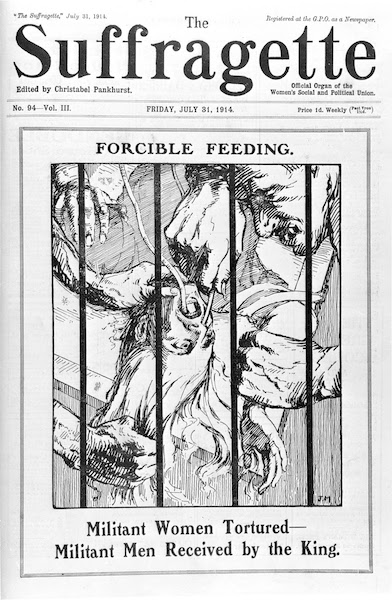Suffragists claimed the mocking word ‘suffragette’ and made it their own

13 June 1913 Emily Wilding Davison memorial edition of The Suffragette
In January 1906, a Daily Mail reporter coined the term suffragette referring, in particular, to members of the Women’s Social and Political Union (WSPU) who engaged in militant demonstrations demanding the right to vote.
The reporter used the term to belittle these women with the feminised adaptation of the word suffragist.
The term suffragist means a person advocating that the right to vote should be extended to more people, especially women. The word suffragette was used disparagingly to describe the more militant female suffragists such as the WSPU.
The WSPU was founded on 10 October 1903 by Emmeline Pankhurst as an independent women's movement. The group took direct action and was involved in civil disobedience, including smashing windows, chaining themselves to railings and heckling politicians. Their motto was ‘deeds not words’.
Emmeline Pankhurst and her daughters, Christabel and Sylvia, were arrested and sent to prison as a result of their activities. They, and other WSPU activists, received repeat prison sentences, where they staged hunger strikes and were often force-fed. The picture at the top of this post is from the 31 July 1914 edition of The Suffragette and depicts the horrors of force-feeding.
The WSPU decided to claim the word suffragette. In 1912, it became the title of their newspaper edited by Christabel Pankhurst. They would pronounce the word with a hard g "suffra-get” to emphasise their determination to win the right to vote.
In 1914, the following appeared in one of their newspapers, "We have all heard of the girl who asked what was the difference between a Suffragist and a Suffragette, as she pronounced it, and the answer made to her that the 'Suffragist jist wants the vote, while the Suffragette means to get it."
The word suffragette is often used to define the whole movement rather than just the militant elements of suffrage.
The WSPU disbanded and suspended their suffragette campaign during the First World War as their members turned their attention to the war effort.
The 8 October 1915 issue of The Suffragette was the last issue under this name, and the title was changed to Britannia.

The Suffragette became Britannia in 1915 during the First World War
After the war in 1918, the Representation of the People Act 1918 gave the vote to women over the age of 30 who met certain property qualifications. But it was another ten years before the Representation of the People (Equal Franchise) Act 1928 gave all women over the age of 21 the right to vote – finally giving women electoral equality with men.

